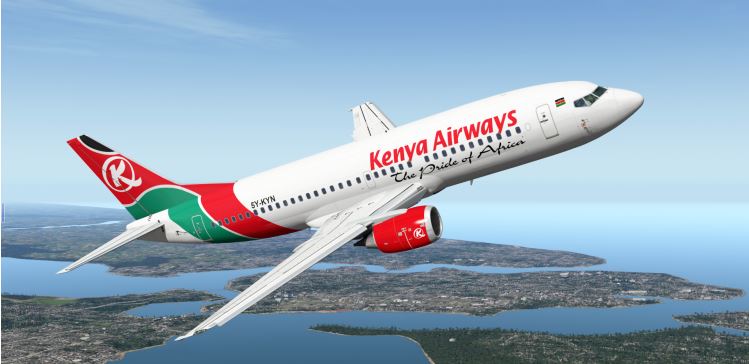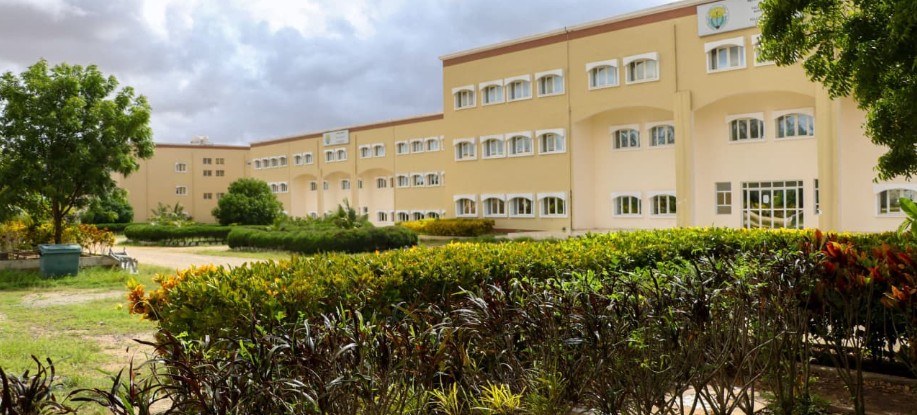KQ temporarily suspends flights to Comoros and Mayotte over cyclone Chido threat

The airline plans to resume flights on December 16, 2024, provided weather conditions improve significantly.
Kenya Airways (KQ) has suspended its flights to Comoros and Mayotte due to a looming threat of Tropical Cyclone Chido, a powerful storm expected to cause widespread disruption in the region.
"Government authorities in both countries have issued alerts regarding the impact of the cyclone, anticipated to persist until Monday, December 16, 2024," KQ stated in a statement on Friday.
More To Read
- Kenya Airways staff jailed for 25 years for trafficking heroin
- MPs shocked as Treasury issues billions in loans to Kenya Airways without signed agreements
- Africa’s land holds the future of climate adaptation: Why COP30 can’t overlook it
- Somali Singer Hodan Africa and daughter die in Mayotte boat tragedy
- Hurricane Melissa is a warning – why violent storms are increasingly catching the world off guard
- Five-day forecast predicts intense rainfall across the country
The airline emphasised that the decision to halt operations was made to prioritise the safety of passengers and staff.
“We sincerely apologise to our customers for the inconvenience this may cause. The safety of our customers and our staff is our number one priority,” KQ said.
The airline expressed solidarity with those in the cyclone’s path.
“Our prayers are for the safety and well-being of the people impacted by these adverse weather conditions.”
The airline plans to resume flights on December 16, 2024, provided weather conditions improve significantly.
Affected passengers have been advised to monitor updates via Kenya Airways’ website or contact the airline’s Customer Excellence Centre for assistance.
Expected to bring torrential rains and wind speeds of up to 200 kph (124 mph), Cyclone Chido has prompted emergency measures across the region.
Comoros has already closed schools, while Mayotte, a French overseas territory, is on high alert, with the French national weather service issuing a red alert — the highest warning level — starting Friday night.
Madagascar's authorities, anticipating the cyclone near the northern Diana region, have taken proactive measures by issuing evacuation orders and delivering emergency supplies such as food, water pumps, generators, and chainsaws.
Since Thursday, authorities have broadcast warnings of imminent danger through cell phones and radio stations, anticipating the impact on nearly 20,000 people.
Further afield, Mozambique’s northern provinces of Cabo Delgado and Nampula are bracing for severe impacts when the cyclone makes landfall on Sunday.
The Mozambique National Meteorological Institute has predicted catastrophic conditions, leading the National Emergency Operations Centre to estimate the potential impact on over 2.5 million people.
"We believe that we can initially start working with an estimate of around 2.5 million people in the provinces of Cabo Delgado and Nampula who may be affected and will need to be rescued,” said Ana Cristina, director of the National Emergency Operations Centre.
Even landlocked Zimbabwe is preparing for potential impacts from Chido’s heavy rains and strong winds.
Cyclone Chido is the latest in a series of powerful storms to hit the region during the cyclone season, which runs from December to March.
Experts warn that climate change is intensifying both the frequency and ferocity of such storms.
Cyclone Idai, one of the deadliest cyclones to affect the region in recent years, killed more than 1,300 people in Mozambique, Malawi, and Zimbabwe in 2019.
Tropical cyclones, also known as hurricanes or typhoons depending on the region, are rapidly rotating storms that form over tropical oceans.
These storms, second only to earthquakes in their destructive potential, often lead to catastrophic flooding, landslides, and outbreaks of waterborne diseases such as cholera, malaria, and dengue fever.
Crisis24, a global risk management firm, has warned that Chido could result in widespread flooding and landslides.
“Stagnant water may pose a significant risk of outbreaks of deadly diseases,” the firm said in a recent advisory.
Top Stories Today














































